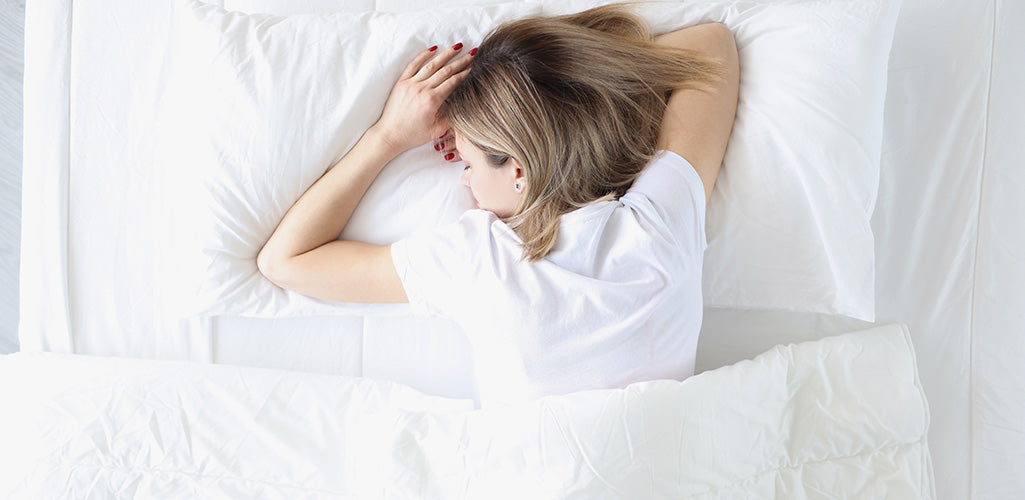
Sleeping better in shift work
Millions of people in Germany work shifts – in hospitals, construction, the police, manufacturing, or retail. For many, working at unusual hours is part of everyday life – but for our bodies, it remains an exceptional situation. While others are sleeping, shift workers often begin their workday – or end it – in the middle of the night. The consequences: sleep disorders, chronic fatigue, and concentration problems. In the long run, not only quality of life but also health suffers.
But is that really necessary? Or is it possible to get a good night's sleep even under shift conditions? The good news: Yes – with a better understanding of our internal clock and the right daily strategy. This article shows how shift work affects our sleep, the biological mechanisms behind it – and what you can do specifically to get better rest despite changing working hours.
Table of contents
- Shift work – a challenge for body and mind
- The internal clock
- Sleep and shift work – what happens in the body?
- Tips for restful sleep during shift work
- Conclusion
1. Shift work – a challenge for body and mind
Shift work means that working hours change regularly and no longer follow the traditional 9 a.m. to 5 p.m. schedule. Early, late, and night shifts are common, often in rotating rotation. Models where shifts alternate weekly are particularly strenuous. For the body, this means constant adjustment – with consequences for sleep, concentration, and metabolism.
Since the body does not have a stable routine can build up, the quality of sleep suffers noticeably. People who work shifts often not only sleep less, but also sleep worse. The short recovery phases after night shifts are particularly critical – because the body finds it much harder to get back to sleep during the day. Deep sleep phaseswhich are important for regeneration and the immune system.
2. The internal clock
Our biological clock is the so-called circadian rhythm – a kind of internal clock, which controls body functions over a 24-hour cycle. These include temperature, blood pressure, hormone levels, digestion, Mood – and also the sleep-wake cycleThis clock is located in the brain, in the so-called suprachiasmatic nucleus, and is controlled by light.

In the morning, when sunlight hits the retina, the body releases activating hormones such as cortisol – we wake up. In the evening, when it gets dark, the body produces the hormone Melatoninthat makes us tired. This finely tuned system is thrown off sync by shift work: Light at night inhibits melatonin production, and daylight after a night shift signals the body to wake up, even though sleep is needed.
3. Sleep and shift work – what happens in the body?
Shift work disrupts the biorhythm. People who permanently live against their internal clock sleep more irregularly and have more difficulty falling asleep and Difficulty sleeping through the night and suffers from chronic fatigue. Regeneration is disturbed, the immune system weakened, the metabolism suffers. This can lead to Weight gain, high blood pressure, diabetes or Cardiovascular system-Problems can arise. The psyche also reacts sensitively: irritability, depressive moods, and social withdrawal are not uncommon.
“Social jet lag” is particularly problematic: one’s own sleep-wake rhythm differs from that of one’s social environment.Anyone who wants to sleep “normally again” at the weekend forces their body to make additional adjustments – and loses even more orientation in the day-night cycle.
4. Tips for restful sleep during shift work
Early shift (e.g. B. 6–14 o'clock)
The day begins when it is still dark outside – the early Stand up is difficult, in the evening you are often not tired enough to fall asleep. Here it is important to day to structure it so that body and mind can rest in time.

- In the morning, go into bright light as quickly as possible or use a daylight lamp to activate your internal clock.
- Reduce light sources from about two hours before going to bed – also ScreensBlue light filters or special glasses can help.
- The Dinner keep it light and digestible – e.g. B. Gemüse, proteinßsources and healthy fats. caffeine späAvoid testing after 2 p.m.
- Light exercise in the afternoon – a walk or stretching – can help you switch off, intensive Sports units It is better to avoid it directly before going to sleep.
- Sleeping environment Optimize: A darkened bedroom, pleasant temperatures (16–18 °C) and digital abstinence before falling asleep improve the quality of sleepät.
Late shift (e.g. B. 14–10 p.m.)
Being able to unwind after work is the biggest challenge on late shifts—especially when you're still physically or mentally agitated. A smooth transition into the evening is therefore crucial.

- After the shift, a conscious transition through relaxation design: shower, a cup herbal tea, quiet music or a book – this signals to the body that bedtime is approaching.
- Before going to bed, darken the bedroom and perhaps use a sleep mask to block out early morning light.
- Avoid digital media – social media and news in particular can be emotionally or cognitively stimulating.
- A light meal late in the evening supports sleep better than hearty or fatty food.
- Ideally, plan exercise in the morning – yoga or a walk will increase your general well-being.
- Who during the day If you are very tired, you can benefit from a short Power nap (10-20 minutes) around midday.
Night shift (e.g. B. 22–6 a.m.)
Night shifts represent the greatest disruption to the body's natural circadian rhythm. Those who work night shifts not only struggle with fatigue, but also with daylight, which wakes the body up again. Planning and consistency are especially important here.

- If possible, go home immediately after work and don't plan any further activities. A clear ritual helps initiate the transition into sleep mode.
- Avoid sunlight on the way home – sunglasses can help reduce light intake.
- Make the bedroom as dark as possible, using blackout curtains or a sleep mask if necessary. Earplugs may also be helpful.
- Sleep can often be better divided into two phases – e.g. B. füFive hours straight after work, a short second nap in the afternoon.
- It is better to eat light snacks during the night shift, e.g. E.g., fruit, oatmeal, soups. No heavy meals between midnight and 4 a.m. – digestion is then particularly difficultäge.
- Caffeine can be helpful at the beginning of the shift, but should be avoided after about 3 a.m.
- Regular small exercise sessions, such as stretching or short walks, help you stay awake and stabilize your circulation and concentration.
5. Conclusion
Shift work poses enormous challenges for the body and mind – especially for sleep. The biological rhythm is disrupted, sleep quality decreases, and health risks increase. But with the right knowledge and targeted strategies, sleep can be significantly improved.
In summary:
- Our biorhythm is controlled by light – use light specifically to control alertness or tiredness.
- Sleep hygiene is essential: darkness, peace and rituals help you fall asleep even at unusual times.
- Diet, exercise, and caffeine all have a strong impact on sleep—adapt them to your shift.
- Night shifts require special attention: sleep immediately after work, light reduction and, if necessary, sleep in two stages.
- Power naps, fixed routines and conscious media behavior will sustainably improve your sleep quality.
Even if you can't live completely in sync with your internal clock, you can help it find its bearings. Give your body the signals it needs—and you'll notice your sleep improving.


Leave a comment
This site is protected by hCaptcha and the hCaptcha Privacy Policy and Terms of Service apply.